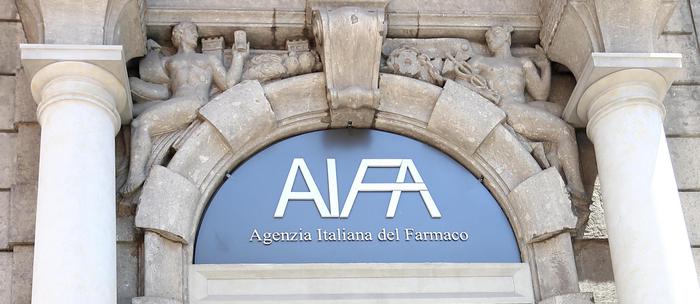Will the European Union launch its first vaccinations against Covid-19 before Christmas?
This is a scenario that now seems possible.
On Wednesday, the President of the European Commission, Ursula von der Leyen, assured that the 27 Member States could "start the same day" their vaccination campaign.
And that date may well come sooner than expected.
Under pressure from Germany, the European Medicines Agency (EMA) announced that it would decide on the fate of the vaccine of the American-German duo Pfizer-BioNTech on December 21, a week before the date initially set.
If this period may seem very short to some, others are surprised on the contrary that the Pfizer product is still not authorized on European soil, when the United Kingdom has already inoculated the first dose of this vaccine at 137,000 British.
So, how does the AEM proceed to study the various approval applications for Covid-19 vaccines submitted to it?
Examine the data provided by the laboratories
First, you should know that the AEM, which has already received a conditional authorization request for vaccines from Pfizer-BioNTech and Moderna, does not carry out new medical tests or clinical trials during its evaluation.
In fact, its experts scrutinize in detail the data provided by the laboratories which themselves carried out the testing phases, in order to identify the effectiveness of the product, its possible side effects, its contraindications ... where the delay of several weeks, which is "the time necessary to ensure that there is no additional question to submit to one of the companies and that it can send the answer", explained Emer Cooke , Executive Director of the European Medicines Agency, in an interview with European Daily Alliance Lena, December 9.
On its website, the agency based in Amsterdam (the Netherlands) explains how to process assessment requests in an accelerated manner.
But she ensures that vaccines against Covid-19 can only be approved if they "meet all the quality, safety and efficacy requirements defined in European Union pharmaceutical legislation".
Concretely, the agency wants to be certain that the “benefit-risk” balance is respected, that is to say that the protection provided in general against Covid-19 is much more important than the potential side effects or risks induced by the vaccine.
These data are reviewed by independent scientists, who must have no financial or other interests with the laboratories.
These experts are also divided into several teams which each work on their own before pooling their work, in order to ensure that they arrive at the same conclusions and that the points of view are varied.
Put in place exceptional measures
In addition, if the demand for marketing vaccines against Covid-19 can be decided so quickly, it is because exceptional procedures have already been implemented upstream, in order to reduce waiting times as much as possible.
In the context of the pandemic, the AEM has thus set up a “continuous review” procedure, called a
rolling review
.
This method allows the agency's experts to start evaluating data as it becomes available, in order to speed up the subsequent assessment of official marketing authorization applications.
Filing an authorization request with the AEM therefore completes this process, which already benefits the vaccines from Pfizer / BioNTech, Moderna and Oxford / AstraZeneca.
READ ALSO>
Vaccines: how Europe is recovering its health
Evaluate vaccine marketing requests
After these different steps, the AEM will issue a scientific opinion to say whether or not vaccines against Covid-19 should be authorized on European soil.
This opinion will be transmitted to the European Commission, which will examine it and consult the member states, a process which may take a few days.
Morning essentials newsletter
A tour of the news to start the day
Subscribe to the newsletterAll newsletters
This deadline will be exceptionally accelerated for vaccines against Covid-19, and the spokesperson for the European executive has already assured, this Wednesday, that "if the AEM gives its authorization [to the Pfizer vaccine] after the meeting on December 21, the Commission will ensure that it can give a marketing authorization within two days ”.
Once the European Commission has given the green light, each of the member countries will then be able to market the vaccine in its territory and distribute it, by deciding how it wishes to conduct its vaccination campaign.
However, the EAJ will continue to monitor the delivery of the vaccine by EU member countries.
Be transparent
Faced with the mistrust that is manifested against future vaccines, the European Medicines Agency has had to redouble its efforts to demonstrate "maximum transparency", as it indicates on its site.
The AEM prides itself on implementing exceptional measures by "shortening its standard publication deadlines" and "publishing information that it does not normally publish for other drugs".
However, it does not go as far as its American counterpart.
The American Medicines Agency (FDA), accused of having urgently authorized treatments of doubtful effectiveness, including hydroxychloroquine, thus engaged in an unprecedented exercise of transparency during the debates around the authorization in emergency vaccine from Pfizer / BioNTech.
To prove that these exchanges were subject to the greatest scientific rigor, the FDA decided to broadcast for one day, live on the Internet, the examination by about twenty independent American specialists of the vaccine data of the American-German duo.
This release, quickly followed by a green light from the FDA, was watched by several million Americans.
For Professor Bernard Bégaud, professor of pharmacology and former expert with the French Medicines Agency, filming the discussions of the experts of the AEM could be a "good thing", in view of the many suspicions of conflicts of interest which weighed heavily. in the past on the European agency.
However, he warns against false interpretations of these “ultra-technical data” by a public that does not understand these complex concepts.
In addition, according to the pharmacologist, the AEM should not be the only agency to highlight its data.
"Everything must be transparent, both the debates, but also the contracts that will be concluded with the companies, that is to say the price negotiations, the conditions for making the vaccine available, and the organization of compensation for possible accidents ... ”.
Skills which are not the responsibility of the Agency, but which will be essential to give confidence in the future vaccination campaign of the countries of the European Union.









